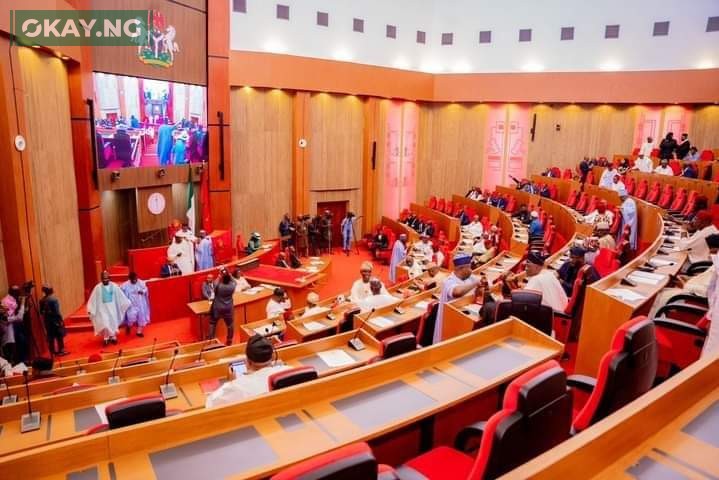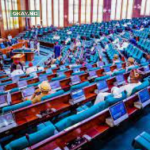The Nigerian Senate is currently deliberating on a legislative proposal aimed at increasing the number of Supreme Court Justices from 21 to 30, okay.ng reports.
This initiative is designed to address the growing backlog of cases and enhance the efficiency of Nigeria’s highest court.
Senator Osita Izunaso, representing Imo West and sponsor of the bill, revealed these details during a press briefing in Abuja, commemorating his two-year tenure in the 10th National Assembly. He highlighted that, despite the recent appointment of 11 justices in 2023, which brought the court to its constitutional maximum for the first time, the Supreme Court remains overwhelmed.
“Even with the full complement of 21 justices, the Supreme Court is overwhelmed. The volume of cases reaching the court daily is alarming. Some litigants are being given hearing dates as far ahead as 2027 and 2028,” Izunaso stated.
The proposed legislation seeks to empower the court to form additional panels, thereby accelerating the adjudication process. “Supreme Court justices typically sit in panels of five, or seven for constitutional matters. If we have 30 justices, it allows the formation of at least five panels simultaneously. That way, more cases can be handled at a faster pace,” he explained.
Izunaso’s proposal also calls for a fundamental reform regarding the types of cases entertained by the Supreme Court. He criticized the current system, which allows relatively minor disputes, such as land and tenancy cases, to reach the apex court. “Why should a land matter in my village end up in the Supreme Court?” he questioned, suggesting that such matters should be resolved at the Customary or High Court levels.
He emphasized that the Supreme Court should focus on cases of national or constitutional significance, including terrorism, homicide, and grand corruption. Izunaso recounted a personal legal experience where a case involving deceased parties was scheduled for 2026, despite having been resolved among their descendants years earlier, illustrating the inefficiency of the current system.
While some have advocated for the creation of regional Supreme Courts, Izunaso firmly opposes this, insisting that a single national Supreme Court is essential for maintaining judicial unity. He advocates for better filtration of cases at lower courts rather than multiplying apex courts.
In a related development, Izunaso commended President Bola Ahmed Tinubu for awarding a posthumous national honor to Professor Humphrey Nwosu, the former Chairman of the defunct National Electoral Commission, who oversaw the historic June 12, 1993, presidential election. Izunaso urged further recognition by naming the INEC headquarters after Professor Nwosu, recalling his own efforts in the Senate to secure national recognition for the late electoral chief.













